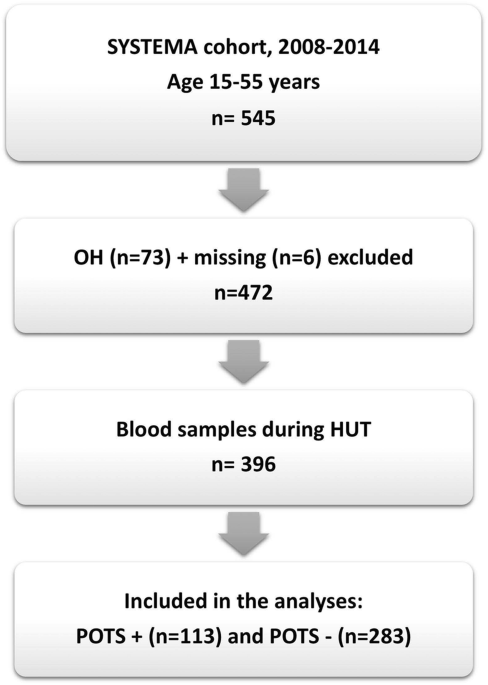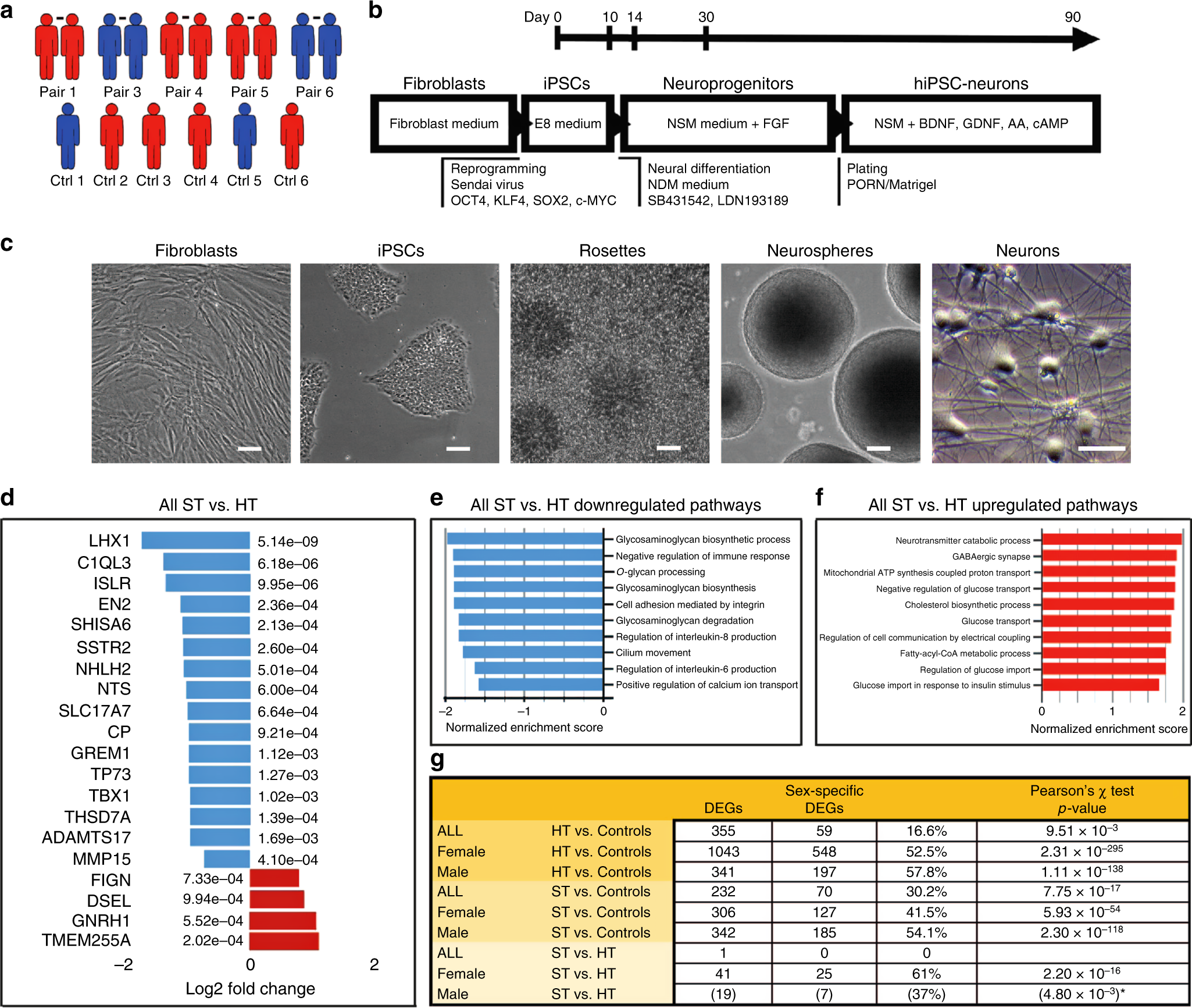Proteomic analysis reveals sex-specific biomarker signature in

Background Postural orthostatic tachycardia syndrome (POTS) is a variant of cardiovascular (CV) autonomic disorder of unknown etiology characterized by an excessive heart rate increase on standing and orthostatic intolerance. In this study we sought to identify novel CV biomarkers potentially implicated in POTS pathophysiology. Methods We conducted a nested case-control study within the Syncope Study of Unselected Population in Malmö (SYSTEMA) cohort including 396 patients (age range, 15–50 years) with either POTS (n = 113) or normal hemodynamic response during passive head-up-tilt test (n = 283). We used a targeted approach to explore changes in cardiovascular proteomics associated with POTS through a sequential two-stage process including supervised principal component analysis and univariate ANOVA with Bonferroni correction. Results POTS patients were younger (26 vs. 31 years; p < 0.001) and had lower BMI than controls. The discovery algorithm identified growth hormone (GH) and myoglobin (MB) as the most specific biomarker fingerprint for POTS. Plasma level of GH was higher (9.37 vs 8.37 of normalised protein expression units (NPX); p = 0.002), whereas MB was lower (4.86 vs 5.14 NPX; p = 0.002) in POTS compared with controls. In multivariate regression analysis, adjusted for age and BMI, and stratified by sex, lower MB level in men and higher GH level in women remained independently associated with POTS. Conclusions Cardiovascular proteomics analysis revealed sex-specific biomarker signature in POTS featured by higher plasma level of GH in women and lower plasma level of MB in men. These findings point to sex-specific immune-neuroendocrine dysregulation and deconditioning as potentially key pathophysiological traits underlying POTS.

Hormonal Contraceptives are Shaping the Human Plasma Proteome in a

Study protocol for head-up tilt test (HUT)., o que é tilt test

PDF) Proconvertase Furin Is Downregulated in Postural Orthostatic Tachycardia Syndrome

Mass spectrometry-assisted gel-based proteomics in cancer

Plasma proteomics of SARS-CoV-2 infection and severity reveals

Proconvertase Furin Is Downregulated in Postural Orthostatic Tachycardia Syndrome

Relationship between POTS status and selected biomarker in univariate

Reclassification of Risk Estimates (Category-Free NRI [>0]) for

Topographic mapping of the glioblastoma proteome reveals a triple

BMC Cardiovascular Disorders 1/2020

Decreased upright cerebral blood flow and cerebral autoregulation in normocapnic postural tachycardia syndrome

Olle MELANDER, Lund University, Lund, LU, Department of Clinical Sciences, Malmö

Sex-specific transcriptional and proteomic signatures in